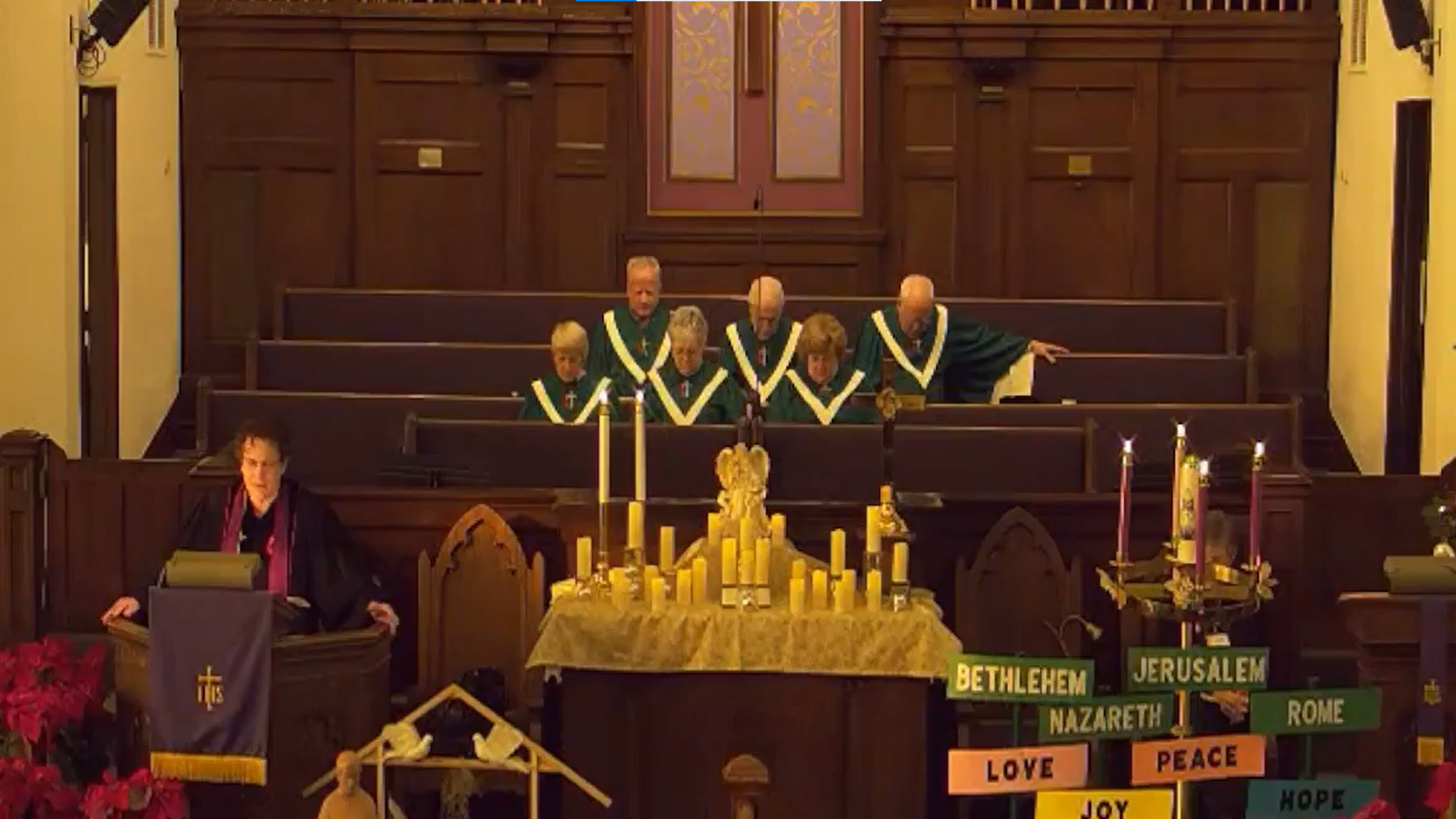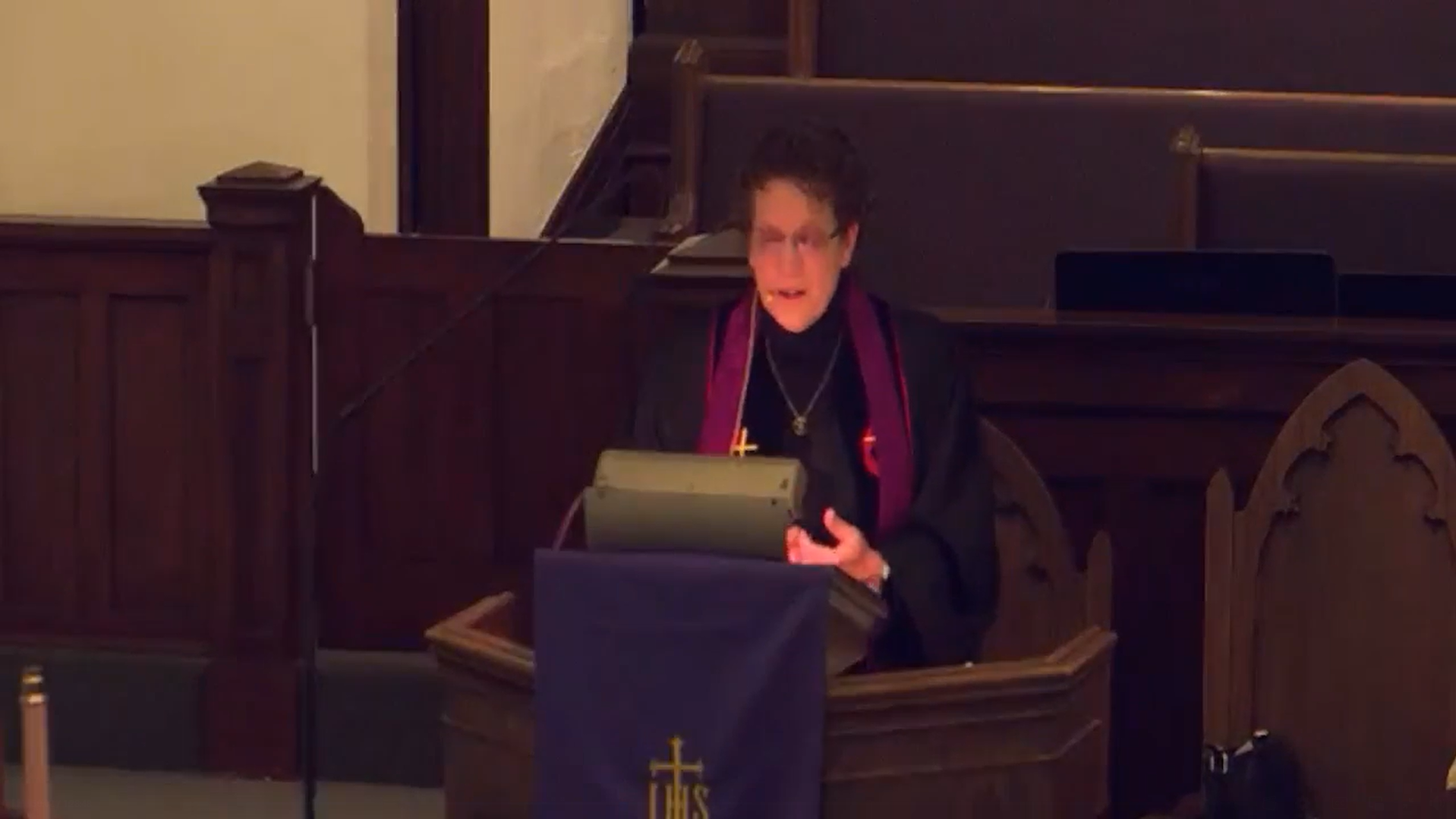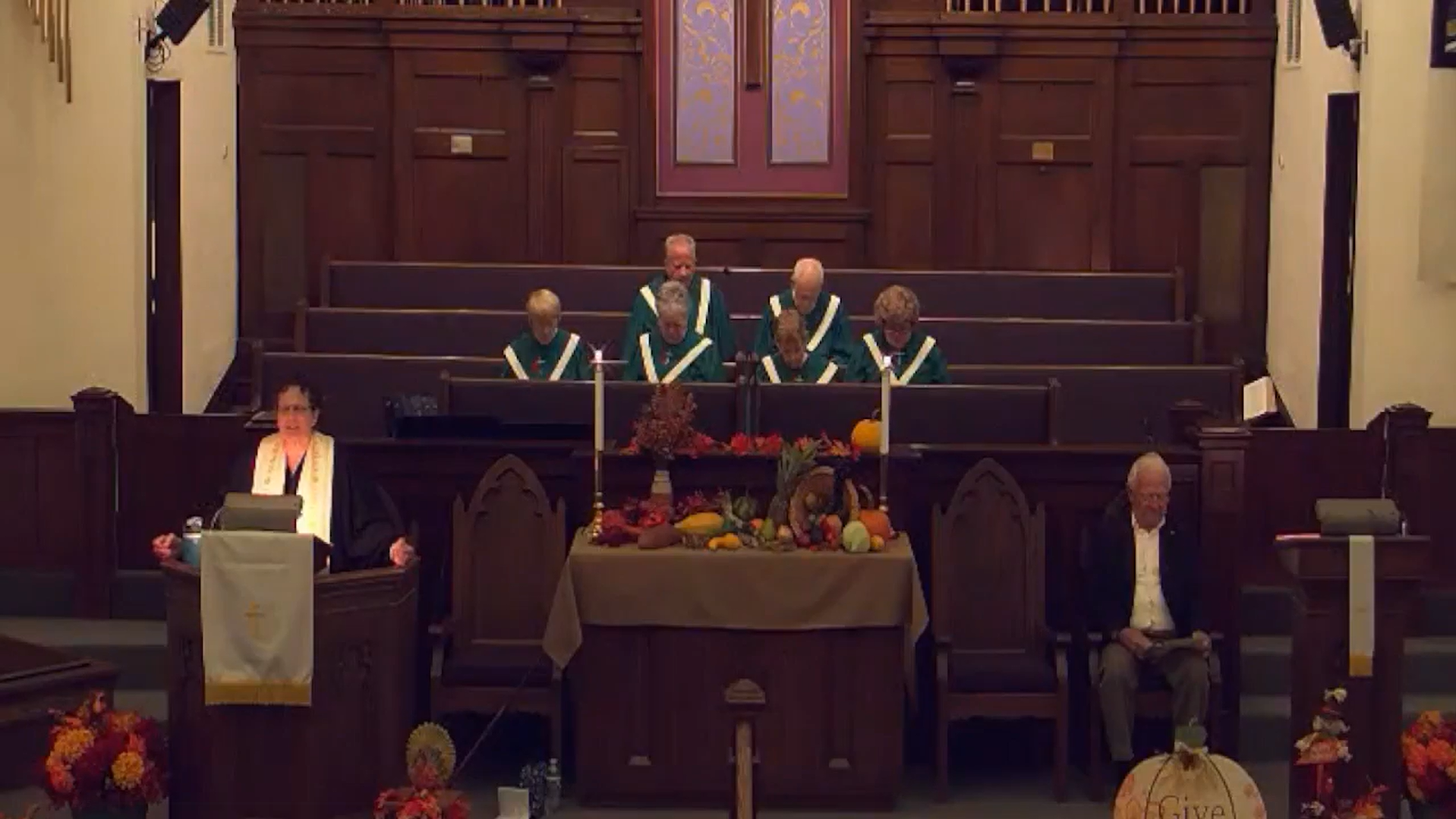
Jesus’ parents were ordinary, hardworking people – a carpenter and his wife who hoped to make a modest living in a society that mocked them just because of their ethnicity. They were poor, and their status would never be equal to the Jewish or Roman elite.

Luke didn’t have to mention the decree in his story. None of the other Gospel writers mention it. But Luke is also the author of Acts, which introduces us to Paul, who ultimately travels to Rome and establishes a church there. The Gospel of Luke has a purpose, and one of those purposes is to show us that it is possible to live a life of faith within the restraints of a powerful and authoritative government.

At this point, I know, it’s easy and perhaps fair to protest that while God may indeed know our needs, certainly many – far too many! – needs go unmet in this world. But I wonder: is the poverty that characterizes too much of our world caused by God not providing enough resources or is it a result of too many of us hoarding and misusing these resources because we are dominated by a sense of scarcity and inadequacy?
Browse all of the Sermons and Messages
It isn’t hard to imagine the squeamishness of the Hebrew people to have a bronze snake on a pole in the midst of the camp while they were surrounded by snakes nipping at their heels. And we can be sure that their prayer was that God would move the snakes out of the way and give them a clear path on their journey. But God didn’t remove the serpents, or even stop them from biting, God chose a different way.
In other words, when Jesus, the Word made flesh, comes, everything changes. And among the first of these changes is that there is no longer a need to sacrifice animals, as God will interact with God’s people in a whole new way. Jesus is doing more than cleansing the Temple – he is preparing the people to change the way that they relate to God.
And that’s what we have to think about as Christians. Jesus calls us to a new life, which means that we can’t keep operating in the same way that we always have. The day after we commit our lives to Christ, we wake up in the same house, with the same family, with the same job and the same problems. So, what’s new about our life?
Fear is obviously present in our Gospel story. Mark directs our attention to the fear of Peter, James and John--especially Peter, who witnesses something amazing and frightening and in his fear decides to do something. Not much is said about James and John except that they were paralyzed with fear.
But that’s the challenge of this passage, isn’t it? Grace is a free and undeserved gift. But it is also a relational gift. When Peter’s mother-in-law was made well, she was restored to wholeness. She didn’t just get over her fever and rise from bed with all the weakness and sluggishness that accompanies being sick. She was healed.
Our scriptures today encourage us to accept a different kind of invitation, an invitation to experience God’s reign in the world. God’s reign isn’t confined to any one time or place. It is present everywhere and able to know each one of us personally. But like the speed limit sign, which cannot be effective unless we obey its limitations, God’s truth, justice and peace will not prevail in the world without our willing response and cooperation.
This past year has been one of anticipation. We have overcome some serious obstacles that have been placed in our path. Last week we received our occupancy permit, and we only have a few more weeks to wait until we re-enter our Sanctuary. There is still a lot of work to be done, but it is getting done! And that is why it is so important for us to know who we are and whose we are.
Christ’s ministry demonstrates that everyone is worthy of God’s love, and Christ’s sacrifice purifies us so that the Holy Spirit can reside in us. God with us. God in us. This is where God’s plan for us comes to fruition. When we accept God’s grace and forgiveness and begin to live our lives as God intended us to live, we fully develop our human capabilities and we can embody, or incarnate, the gospel message of justice and peace the best way possible.
God is with us and for us…not just some of the time, but all of the time, even when we don’t act as we want, even when we don’t live into the identity God has given us, or make it to church on a regular basis.
When you think about it, this fairy tale is not so different from our own journeys. We often encounter things that cause us to stumble into darkness. And we are held there as if by a spell, unable to experience joy or to see any hope. And so we wait for our hero or heroine to arrive. We wait for that voice to call out to us from the dessert.
Through Christ, we are formed into a new body with new, extended family members. Our existing family remains, but at the same time, new family members are found, bringing additional love into our lives and sometimes filling existing voids.
Work on us. Reshape us. Help us to mend our broken relationships. Help us to be in right relationship with you. Anticipating something more and better, we wait, we imagine, we believe, and we grow in character, as God does what God does, smoothing us, reworking us, making something beautiful out of an old lump of clay.
As the world becomes more secular, many people don’t really know the Christ we claim to follow either, because getting to know the real Jesus is sometimes a little stressful and confusing. Jesus challenges us to alter our priorities, values, and occasionally even the direction of our lives.
God has blessed us with a great church and a wonderful opportunity to work for God’s kingdom in the name of Jesus Christ. Yet this work often fails, not because of God or structures or well-crafted plans. The work of God’s kingdom often fails because of us. Like the gatekeepers of the Wall, we run the risk of being bribed and seduced to compromise our faith and serve other gods.
In the Bible darkness – a place of nighttime, sometimes a place of fear or pain, and often a place of waiting – is contrasted with the use of light – a place of daytime, boldness, peace, and occasionally, a place of revelation. It is the light and dark working together that offer us expressions of God’s presence in our lives. When we are in the places of fear in our souls, God is with us, offering us boldness and peace.
I have known people in my life in whom the very Spirit of Christ was manifest in such a way that I could see it and feel it. People who exhibit this depth of faith are like leaven. They literally spill the Spirit out on to everyone they meet, so that it infects the people around them. As I sit here writing these words, I feel myself surrounded and embraced by the great cloud of witnesses who, like Paul and the people of the Thessalonian church, infected me and continue to infect me with the Spirit of the living Christ.
I don’t think that I was able to grasp the depth of this particular parable until a few years ago when I stood in the check-out line at Kohls and the person in front of me was purchasing a huge pile of dress-up clothes – dresses, suits, dress shirts, ties, socks, shoes, those types of things. It looked like everyone in the household was getting a new set of clothes. Because there wasn’t any major sale going on, the final cost was around $700.
Jesus said that his followers would be marked, and known, by their love. John Wesley believed that worship was one of the means of grace, but not the entire experience. Love becomes an embodied expression of one’s faith through acts of mercy carried out in the community. In other words, church is an action word. Church is a verb. Church is love enacted.
Although I believe that God expected and deserved the faith and trust of Israel, it was not until the incarnation of Christ that humanity really understood what it means to experience God with us. I don’t think the Israelites complained anymore than we do in our everyday lives. The difference is that we aren’t struggling for our survival in the wilderness.
Both lessons this week remind us of God’s generosity and this is one of those times when we have to take a God-view of the world. At this time of the year I often think of the early settlers in Plymouth. With the onset of winter following a poor harvest, I wonder if they looked back on their lives in Europe and forgot about the persecution and poverty they faced there.
In our gospel today, Jesus reminds us that there are no shortcuts when it comes to the Kingdom of God. When Peter asks, “Lord, if another member of the church sins against me, how often shall I forgive? As many as seven times?” And Jesus says to him, “Not seven times, but, I tell you, seventy-seven times.” Seventy-seven times? Other translations say seventy times seven. Either way, that’s a lot of forgiveness.
But here’s the thing. God doesn’t simply invite us into the Kingdom of God. God offers us a drink and that is the cup of salvation, or the opportunity to live and love as Christ did. We are called to be in right relationship with God and with others, but as humans living in the 21st century, we tend to minimize the importance of relationships.
As the Church, I think we have to seriously consider how we react, or respond, to these situations, because how we respond defines who we really are. It’s human nature to want to choose one side or the other. But Jesus challenges us to live like he does. Throughout the gospels, we don’t see Jesus taking sides. Jesus responds to each individual situation in the same way – with compassion. Whether a person is mourning, chronically ill, disabled, immoral, hungry or frightened, Jesus offers compassion.
We have forgotten that we have a God who loves us so much that he sacrificed his only son so that we won’t perish, but have everlasting life. Jesus went to the cross and died and was resurrected so that we could discover that God’s love is, in fact, for all; that God is working in us and through us to make this world a more just and equitable place; that God will grant us courage and grace sufficient to meet the challenges of the day; and that when we stand with and for those who suffer or are persecuted, we encounter God in a powerful and palpable way.

